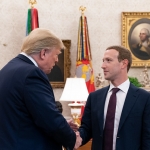Indian Government Loses Major Tax Case to Vodafone

Vodafone recently won a rare - but potentially very significant - victory over Indian tax authorities. The Bombay High Court dismissed the government demand for the company to pay 30 billion rupees (about $490 million) for a share transaction conducted in the offshore tax haven of Mauritius.
On August 21, 2008, Vodafone India issued 289,224 shares at a price of Rs 10 ($0.16) to a subsidiary of its UK parent company in Mauritius. At the time, Vodafone shares were worth Rs 8,591 ($140.7). The Indian government argued that Vodafone India - which is the country's second biggest mobile phone carrier - was effectively giving a disguised loan to the UK owners but the courts have ruled that Vodafone does not owe the government anything since the shares have not been sold.
Governments around the world have long alleged that companies are evading taxes by moving financial transactions to countries that offer more favorable tax rules. Thus Starbucks runs its UK operations out of the Netherlands; while Microsoft sells its software out of Ireland and all Amazon's European sales are conducted out of the tiny country of Luxembourg. In a similar move Burger King, an iconic U.S. fast food company, just concluded a merger that will allow it to move its headquarters to Canada.
What Ireland, Luxembourg and the Netherlands have in common with Canada and Mauritius are lower taxes. A string of scandals in the last few years have revealed that Amazon paid almost no taxes on â¬13.6 billion in European sales last year; Microsoft allegedly saved $2.4 billion in taxes in 2011; and Starbucks paid no taxes on £3 billion ($4.8 billion) in three years of UK sales.
While many countries have rarely done more than express outrage and sometimes investigations, the Indian government has tried to take a harder line. It went to court to apply a 1985 Indian Supreme Court decision in the case of McDowell and Co. Ltd. vs Commercial Tax Officer that attempts to draw a line between tax avoidance and tax evasion.
In that case, the judges concluded that "it is neither fair nor desirable to expect the legislature to... take care of every device and scheme to avoid taxation. ... It is up to the Court... to determine the nature of the new and sophisticated legal devices to avoid tax... expose [them] for what they really are and refuse to give judicial benediction."
The Vodafone case is tricky, however, as it does not involve the sale of physical goods (like liquor in the case of McDowell) or even assets. All the company did was transfer the ownership of the Indian subsidiary's shares to another part of the Vodafone in another country.
Since then, India has changed its tax laws, so any company that conducts a similar transaction in the future will have to pay taxes on shares that are priced below market value.
Meanwhile Vodafone has also been fighting a second high profile case with the Indian tax authorities - whether or not it should pay $2.9 billion in taxes for the original investment it made in the Indian mobile business in 2007. At the time, Vodafone, a UK company, used a Dutch subsidiary to buy a 67 percent stake in the Indian business operations of Hutchinson, a Hong Kong company, via a transaction in the Cayman Islands. The government claimed that since Vodafone purchased an Indian company, it should pay taxes in India but the company says since neither Hutchinson nor Vodafone were based in India, no tax was due.
The case remains unresolved - Vodafone took the Indian government to international arbitration this past April but the two parties have yet to agree on the third member of the arbitration panel.
Indian activists say that the Vodafone case exemplifies how international companies set up "post box companies" to take advantage of the Mauritius Offshore Business Activities Act. This allows them to avoid paying the normal taxes that would be due when a similar transaction takes place between two Indian companies.
Prashant Bhushan, a public interest lawyer who has fought many cases in the Indian Supreme Courts, says that that the companies intentionally structure their transactions in ensure that "capital gains [but] everyone else loses."
Mayank Misra, a lawyer who worked with Bhusan, told CorpWatch that the verdict was a missed opportunity. "Despite how tricky Vodafone's case may have been, a ruling against routing transactions through post box companies would have had far reaching consequences for an exceedingly common practice," said Misra. "The cases that make it to court are a minuscule sample of the actual number of such transactions taking place, making it all the more important to lay down effective precedent."
Indeed, the Vodafone ruling is being closely watched by other multinationals especially since corporations like IBM, Nokia and Royal Dutch Shell are embroiled in similar cases in India. "The judgment will not only serve as a precedent in the legal arena but will also lend the much needed boost to foreign investors," Sanjay Tolia, a tax expert at Price Waterhouse Coopers India, told the Times of India.
Activists say that India doesn't need such a boost. Tax Justice Network commented that even if the Indian Supreme Court ruled in favor of Indian tax authorities, companies would still be scrambling to invest in the Indian telecommunications market "knowing that it is a goldmine."
Indeed, despite its tax battles, Vodafone has done just that. This year the UK company spent another Rs 10,142 crore ($1.7 billion) to buy out the remaining shareholders of Vodafone India, making it the first foreign telecommunications company to wholly own an Indian mobile phone operator. It also paid $3 billion to buy additional radio airwaves in a government auction this past February to beef up its services in the country.



